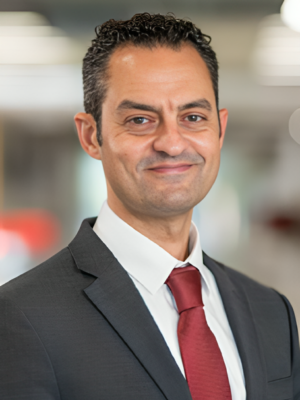Vice Chancellor for Research
Vice Chancellor for Research
The Texas A&M University System
Support: Hope Mireles | Email | 979.458.6041
Dr. Joe Elabd is the Vice Chancellor for Research at The Texas A&M University System; a system of 11 universities and 8 state agencies with externally funded research expenditures of over $1.5 billion annually. As the leader of the A&M System Office of Research, Dr. Elabd is responsible for providing research leadership and services to support all 19 system members and oversees numerous offices and initiatives, including Texas A&M Innovation, National Laboratories Office, Bush Combat Development Complex, Texas A&M Semiconductor Institute, Texas A&M Fort Worth, Research Security Office, Research Compliance Office, Research Administration Office, Research Development Office, and the Chancellor’s Research Initiative.
Prior to these roles, Dr. Elabd has served in several administrative roles at Texas A&M University, including the Interim Vice Chancellor and Dean of Engineering, Interim Director of the Texas A&M Engineering Experiment Station, Associate Dean for Research of Engineering, and Associate Department Head of Chemical Engineering.
Dr. Elabd is also currently a Professor and the Axalta Coating Systems Chair II in the Artie McFerrin Department of Chemical Engineering at Texas A&M University. He is a Fellow of the American Physical Society and served as a Senior Fellow at the Instituto di Studi Avanzati, Università di Bologna and a Scholar in Residence at the Food & Drug Administration. He has received numerous research awards including the NSF CAREER Award, the ARO Young Investigator Award, and the DuPont Science and Engineering Award. His research focuses on electrochemical energy (batteries, capacitors, fuel cells) and materials and polymer science. Dr. Elabd has taught chemical engineering courses at all levels (freshmen, sophomore, junior, senior, and graduate).
Dr. Elabd received his Ph.D. and B.S. both in chemical engineering from Johns Hopkins University and University of Maryland, Baltimore County, respectively, and was a National Research Council Postdoctoral Fellow at the U.S. Army Research Laboratory.
